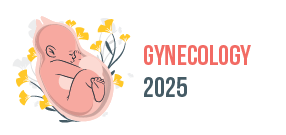Spontaneous Abortion and Miscarriage
Spontaneous abortion, commonly known as miscarriage, refers to the natural loss of a pregnancy before the fetus reaches viability, typically occurring within the first 20 weeks of gestation. Miscarriage can result from various factors, including chromosomal abnormalities, maternal age, uterine abnormalities, hormonal imbalances, and certain medical conditions. Symptoms may include vaginal bleeding, abdominal pain, and cramping. Diagnosis is confirmed through ultrasound and blood tests, while management options depend on the stage of pregnancy and the individual's health. While miscarriage can be emotionally challenging, most women go on to have successful pregnancies in the future. Supportive care, counseling, and medical guidance are crucial for women and couples navigating the experience of miscarriage.
Keywords: Spontaneous abortion, Miscarriage, Pregnancy loss, Chromosomal abnormalities, Maternal age, Diagnosis, Management options, Emotional support.
Related Sessions
Tags
- Spontaneous Abortion and Miscarriage Conferences
- Spontaneous Abortion and Miscarriage Events
- Spontaneous Abortion and Miscarriage Meetings
- Spontaneous Abortion and Miscarriage Hybrid Event
- Spontaneous Abortion and Miscarriage Event
- Spontaneous Abortion and Miscarriage Summit
- Spontaneous Abortion and Miscarriage Webinar
- Upcoming Spontaneous Abortion and Miscarriage Event
- Obstetrics Conferences
- Obstetrics Events
- Obstetrics Meetings
- Obstetrics Hybrid Event
- Obstetrics Event
- Obstetrics Summit
- Obstetrics Webinar
- Upcoming Obstetrics Event
